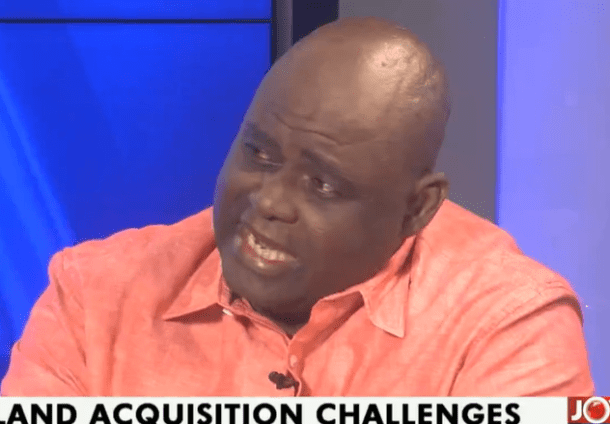Executive Chairman of Comet Properties, Nana Odeneho Kyeremateng says policies put in place by the government to address the issue of housing deficit have not been completely successful.
According to him, unlike previously when players in the agric business could earn huge amounts of money for their cocoa in the world market to enable them to build houses, the current world market prices have been streamlined, leading to low revenue for such farmers.
"The policies have not worked totally. The international market has streamlined prices of Agric produce and doesn't give room for people with 10 to 15 acres of cocoa to build houses again. When that vacuum was created, the public service came in, started employing people trying to bring young people who were civil servants, they granted them loans to build their own houses. But what was the percentage of the population that came into the public sector? They were few," he said.
Speaking on JoyNews' PM Express Business Edition, he noted that although Ghana Housing Department, now State Housing, introduced by former President Dr Kwame Nkrumah aided certain vicinities including Cantonments, Labone, it also withered due to economic challenges the country faced in the 1970s.
"When the ERP and the structural adjustment programs came in the 1980s with Rawlings, the World Bank said forget about building houses as a public sector function," he added.
Government relegating the power to create affordable housing to the private sector he said during his interaction with host, George Wiafe is not the way to go.
He said: "I don't support the idea of insisting that it is the private sector that should lead in financing and funding housing. Government should play a major role. Big funds into a wholesale holder, who will then give it out to the mortgagees so citizens can get access to the funds."
His comments come after the Ghana Statistical Service (GSS) indicated that the just-ended Population and Housing Census revealed that Greater Accra remains the most populated area with 5.44 million people, compared to the 4 million recorded in 2010.
It also revealed that out of the 10.7 million structures listed, 20 per cent were kiosks and wooden structures.
One out of every five structures listed was not fully completed.
Meanwhile, Nana Odeneho Kyeremateng revealed that the country's growth rate has been declining for the past decade.
According to the GSS, the recent 2.1% growth rate recorded has been the slowest since independence.
Latest Stories
-
We’ll embrace cutting-edge technologies to address emerging healthcare needs – Prof. Antwi-Kusi
27 minutes -
Nana Aba Anamoah, Cwesi Oteng to attend Philip Nai and Friends’ charity event
32 minutes -
Environmental protection officers receive training on how to tackle climate change
35 minutes -
CLOGSAG vows to resist partisan appointments in Civil, Local Government Service
2 hours -
Peasant Farmers Association welcomes Mahama’s move to rename Agric Ministry
2 hours -
NDC grateful to chiefs, people of Bono Region -Asiedu Nketia
2 hours -
Ban on smoking in public: FDA engages food service establishments on compliance
2 hours -
Mahama’s administration to consider opening Ghana’s Mission in Budapest
2 hours -
GEPA commits to building robust systems that empower MSMEs
2 hours -
Twifo Atti-Morkwa poultry farmers in distress due to high cost of feed
2 hours -
Central Region PURC assures residents of constant water, power supply during yuletide
2 hours -
Election victory not licence to misbehave – Police to youth
2 hours -
GPL 2024/2025: Nations thrash struggling Legon Cities
2 hours -
Electoral offences have no expiry date, accountability is inevitable – Fifi Kwetey
2 hours -
Ghanaians to enjoy reliable electricity this Christmas – ECG promises
2 hours

